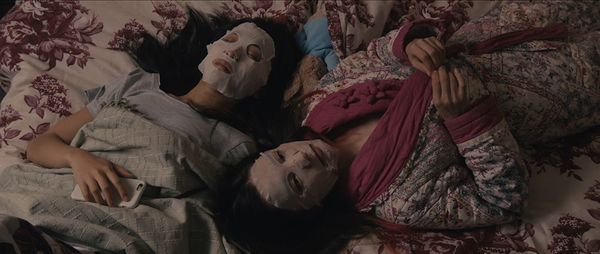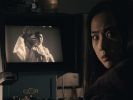Eye For Film >> Movies >> Susu (2017) Film Review
Susu
Reviewed by: Jennie Kermode

It's not often that a film manages to be both too obvious and too obscure. With its roots in the Gothic, Susu has the proper air of tragic inevitability, but the twists on which its plot hinges are signposted miles ahead. Yet whilst it's easy to anticipate where the story is going, it's much harder to understand what it hopes to achieve by doing so.
The titular Susu was, we are told, a Kunqu opera star. She died some years previously - estimates vary, and nobody seems altogether clear on how it happened. She bore a strange resemblance to young student Qi'an (Zitong Wu), who, unaware of all this, agrees to take on a job in the English stately home where she spent the latter part of her life. There, in the company of her flatmate Aimo (Zhu Lin), she is to write out English translations of all the lyrics in performances captured on film in the family archive. It ought to be a simple job but, from the outset, everybody seems just a little bit too keen. Aimo is openly discomfited, but Qi'an is happy enough to stay - until it's too late to change her mind.

There are the bones of a good thriller here, but writer/director Yixi Sun tries far too hard, packing in a lot of extraneous plot (including the misadventures of a historian who just happens to be visiting the house at the same time as the students and has nothing beyond exposition to contribute), and giving every character peculiarities that distract from, rather than contributing to, the main plot. Qi'an is mysterious about her own origins; she and Aimo are randomly nasty to each other, and there's not enough else there to explain why they still want to spend time together. The relationships between family members and hangers-on in the house work similarly, whilst a heavy helping of flashbacks, some of them quite unnecessary to the story, confuses things further. There is no sense of forward momentum; instead, each scene begets a fresh attempt to move the plot sideways.
With Sun's direction and editing similarly scattershot, there's not enough sense of consistency to build up tension. The actors are hopelessly out of tune with each other and some of them risk being outperformed by the furniture - which is beautiful, for what it's worth. The setting is well chosen, the sets well dressed, but we have to rely on this alone for any real sense of character.
Somewhere within all this there's interesting commentary on Western fetishisation of Chinese culture and Chinese women - perhaps even on the legacy of empire. These thematic elements still manage to contribute something of substance to the film, but they're let down by the disordered nature of the whole.
Reviewed on: 06 Jun 2018
















